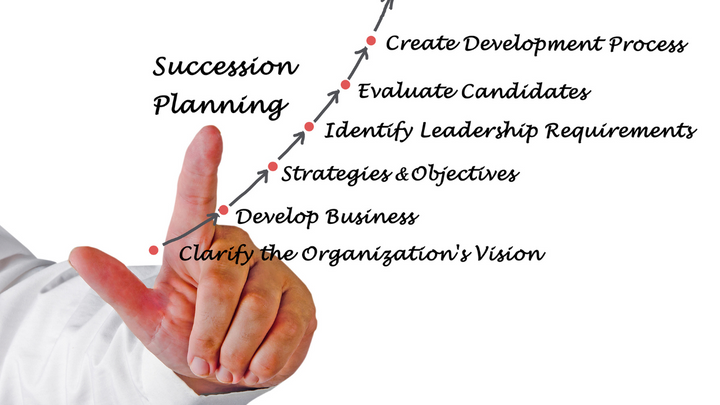7 Must-Know Tips for Winning Office Politics

Originally published here
Watch a short video of this article here
Like it or not, you have to play it.
Office politics can be a minefield for office workers. The office is full of office politics, and it’s up to you to navigate the terrain as best as possible if you want to win. If you’re reading this article, then chances are that you’re already aware of workplace politics and how important it is in order for you to thrive in your organization. Even if you’re not at work right now, there are still ways that office politics can affect your life; for example, if someone takes credit for something that was really yours or gets promoted because they know somebody high-up in the organization. These things happen all too often in offices everywhere!
Office politics are a fact of life no matter where you work.
It is not just the type of person you are, it’s how others perceive your actions that matters. People take part in workplace politics to profit both on business and personal levels — and it can be hard for those at work who want what they need while also holding onto power themselves! It might seem like office politics would only involve a few things such as deceiving or controlling other people but there’s more than meets eye with this ritualistic behavior…
Why do workplaces become “political”?
It is easy to understand why in-house politics arise when there’s the difficulty maintaining opinions between individuals. Some people will always possess more power than others through hierarchy or an alternative reason, and it can be normal for us as humans to want higher up on that ladder too! However, these conflicts could take away from what should happen “as one” because of limited resources at hand — especially if teams are competing against each other even though their goals may go against the greater good.
What do you do in office politics?
Office political actions are actions taken at work to improve status or improve a personal agenda. These self-serving and greedy decisions are unofficial and that is one of the reasons for an unpleasant meaning of word office politics. When an employee is engaged in this process frequently, the employees lose interest becoming less productive eventually contributing fewer ideas for fear of negative ramifications. Of course, office politics will be detrimental to performance.
Since you may not have a choice in this matter, consider these 7 tips so you come out ahead.
1. Understand the informal network
Observe the interactions between two people to find out if there’s a friendship, respect, or romantic bond. Try and decipher how influence flows between parties as well as whether interpersonal conflicts occur in their relationships with each other. Watch for group cliques within groups where they may be members of different cliques than what you would expect based on who is friends with whom at school — maybe one friend likes being patriarch but knows all about fashion trends while another prefers reading books together so gets most entertainment from that sorta thing.
Find out who’s connected to you in the business world by investigating informal interactions. Understanding these networks is important because it helps with navigating politics and makes boundaries clearer; knowing where your authority lies will make for a better work environment overall!
2. Know the unspoken rules
If you want to be successful in business or your career, then it is important that every aspect of your day-to-day life follows the rules. The unwritten guidelines will help keep office politics at bay and provide a sense of order for how things should go down on any given project or meeting with coworkers. If someone doesn’t follow these guidelines, there could always be consequences if they cross another person’s boundaries — don’t let this happen! Play by all established “unwritten” laws so as not to have regrets later on because chances are those experiences would’ve made some type of difference when deciding who gets promoted next.
3. Build your coalition… start networking!!
See everything from a different perspective. Be friendly, but don’t align yourself too closely with anyone just to make friends — that’s only going in one direction and can backfire as well! Keep your connections strong by being careful what words you use; avoid empty talk at all costs because it will gain trust faster than anything else does. Do not undermine someone’s ability to do so or make them feel like there are unwanted ears around when you want more privacy, even if what is said shouldn’t necessarily stay private (private matters).
Cast your net wide and look beyond the people who are most immediately in front of you. Pro Tip: Gossip can be harmless if done with a good ear to what’s said around us while learning some valuable information from those close by — our coffee machines especially! These details may help guide future choices or at least give pause when considering an opportunity further down one’s career path; they often go unnoticed but shouldn’t be underestimated as being just as important (if not more) than any other factor considered during this process.
4. Don’t forget to work on your Soft Skills
It’s not just about understanding what people want, it is important to use your knowledge and skills for the best outcome. You can build reliable networks by cultivating strong interpersonal skills in order to deal with any situation that comes up while also learning others’ emotions well so you know when they are feeling pleased, sad, or frustrated without having them tell you directly which helps relations between one another too!
It takes time but listening more often than talking will help improve both parts of this process because after all; we’re always listening back once someone speaks again
5. Mind how you are perceived
You should always approach problems with a friendly and courteous tone. It’s important not to play politics, but when you need help from someone who isn’t your friend or colleague in the office — be careful! You don’t want them thinking badly of us because we were “playing favorites.” Keep up close contact by keeping things lighthearted; avoiding deep narcissists can be difficult since they often have many redeeming qualities that make it hard for others to see beyond their surface personality traits-that being said: be on your guard against those who would use you for their own gain, whether through kindness or malice. If possible befriend the good-hearted ones and learn more about them to see if they are a viable option in helping yourself
Beware of Machiavellians — these individuals will try anything given half chance (even when doing something kind seems appropriate).
6. Chart political power (not formal organizational chart)
Where office politics are rampant in the workplace, it often bypasses organizations’ formal structures. I’ve found it best to map out political power rather than rank or title and explore why they’re able to influence others while able themselves have authority over anyone else; if you ask this then maybe we can find an answer: Who do people respect most on your team? Which champion/teacher is the greatest mentor for many (not just himself)?
7. Utilize your network as a source of your political power
Use your network to find resources and information that are relevant to you. It can be used as a tool for political power, which will help influence others in the process! Maintaining relationships with team members is essential at all times — especially during stressful situations where brainstorming new ideas or partnerships may arise from their support alone (and without much input). These professional connections might create an “edge” when moving into minimal or moderate workplace politics; being able to work together towards success while still protecting personal boundaries
Key points
Effective office politics is essential for the work environment. It enables you to achieve your goals in a reasonable and fair manner while keeping an eye on everyone closely throughout every aspect of it all — from observing social circles within our own group or outside relations with other groups; identifying differences between relationships among various coworkers: being aware that there can be negative forms as well helps us avoid needless suffering caused by these conflicts when managing coworkers who take advantage at another’s expense.
Before you go, please remember this!
You should always keep your organization’s goals in mind and do not criticize others. Make a reputation for using the term positive politics, which shows an understanding of how to build relationships with people from all walks of life while still holding them accountable when necessary so they know you’re serious about what needs doing without making them feel like there are any negotiations being held at gunpoint or underhandedly taken advantage amongst one another; it also important that we have responsibility for our actions-demand help if need be! This will allow us to discover better ways forward as well as give feedback regarding certain work products (and avoid gaining enemies)



Comments ()